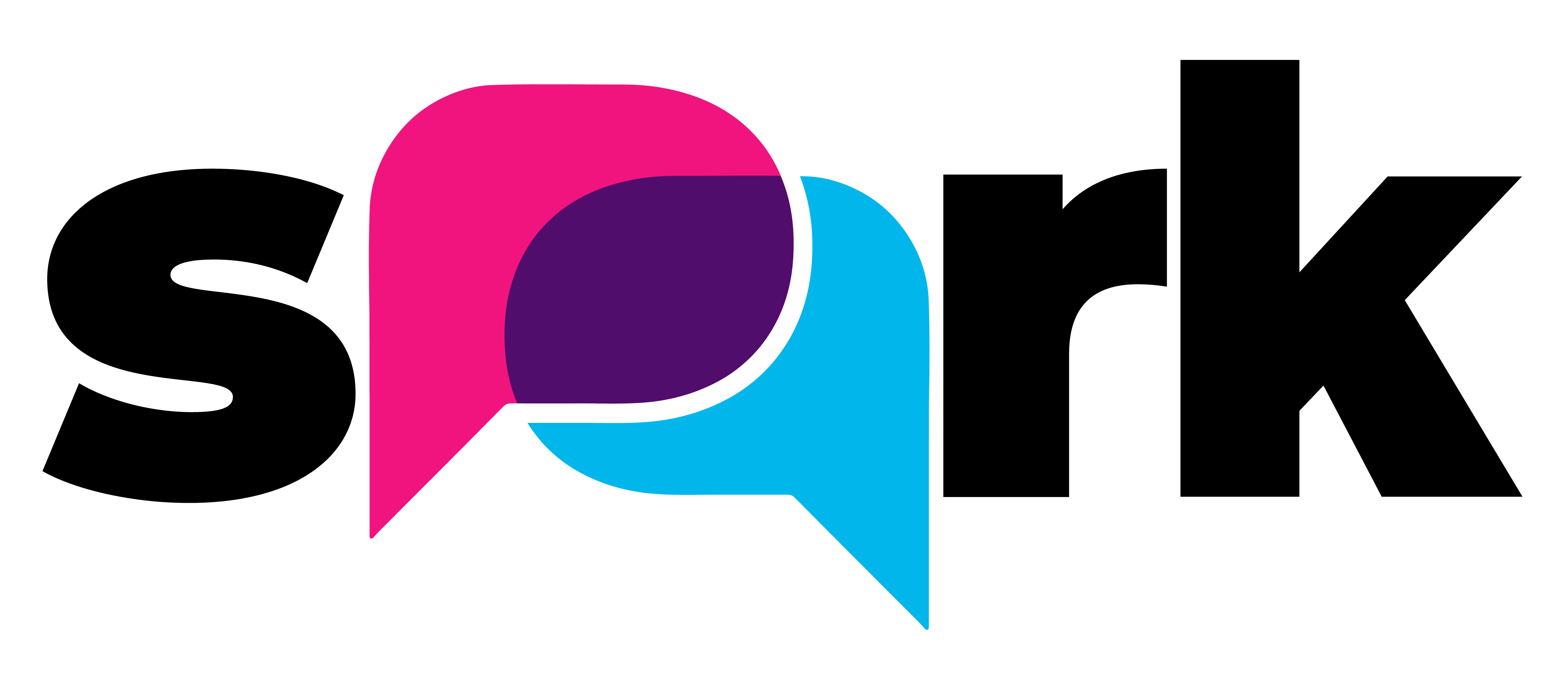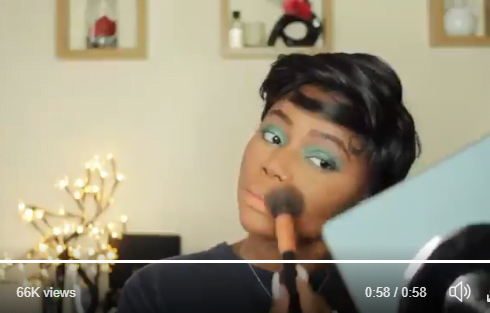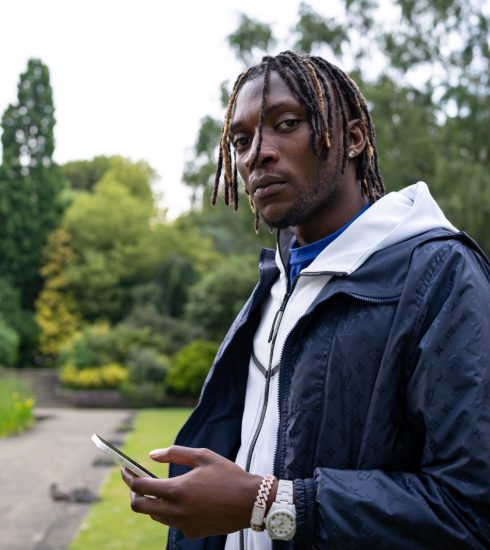Entertainment Journalist Gracey Mae and her relentless effort to take African music to the world.
From Lagos to Accra, London to Los Angeles, people from all over the world and all walks of life are singing songs from A-list African superstars like Fireboy DML, Stonebwoy, Davido, Camidoh, Arya Starr and Tems. Afrobeats has attacked the globe with its infectious rhythm and undeniable vibe making it one of the fastest-growing music genres globally. African musicians and performers are key drivers of Afrobeats’ increasing popularity, but little is said about passionate industry experts such as DJs, managers, and music executives who also work behind the scenes to showcase their rich heritage and show the world what’s new and buzzing from Africa.
One such person is Gracey Mae, a London-born Nigerian Music Executive who has worked with superstars like Bob Marley, Bella Shmurda, and Oxlade to manage their music publicity campaigns. As an award-nominated entertainment journalist with over 8 years experience, Gracey has interviewed over 250 artists from Africa and all over the world. Not many people can say that they are a Voting Academy member of the Grammy Awards, BRIT Awards, MOBO Awards, and BET Awards! We caught up with her to talk about her journey as the UK’s leading female Afrobeats Host and her mission to cover the length and breadth of the earth with this great sound from Africa.
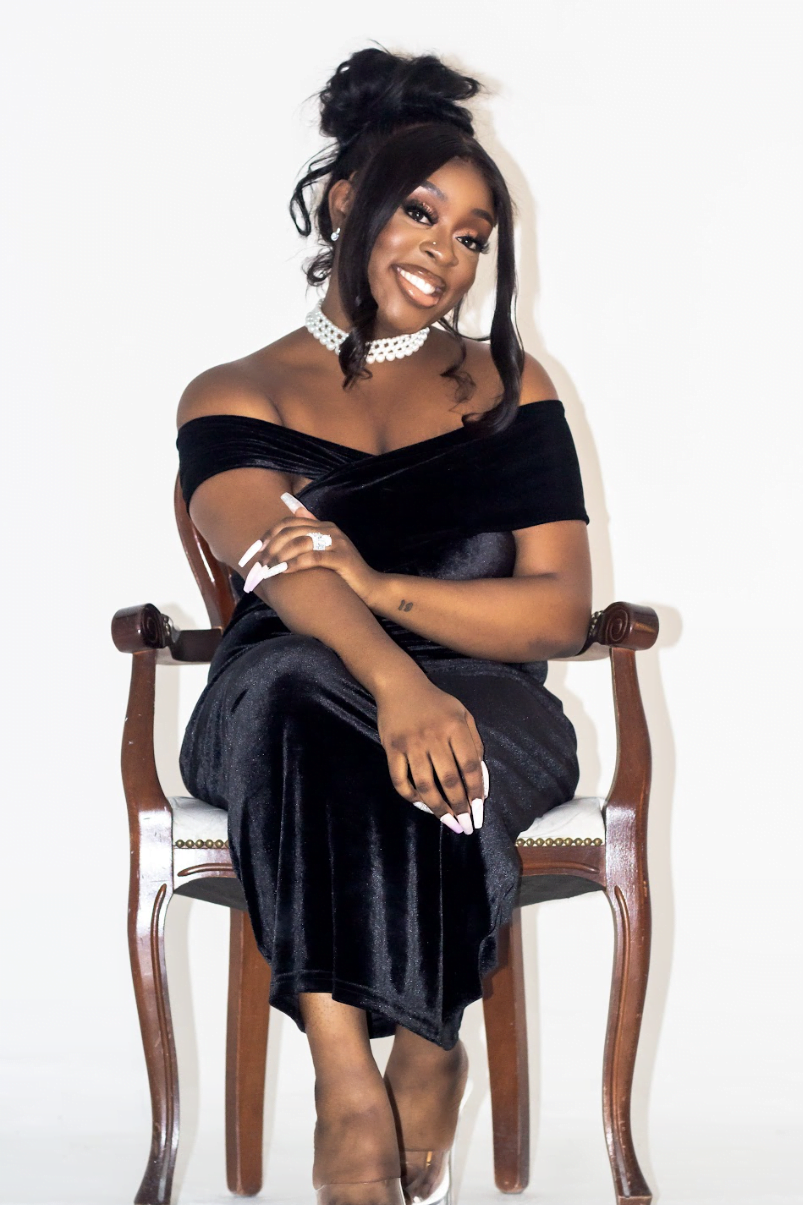
SM: How did it all start for you?
GM: My journey is quite different to a lot of people. I am a child of two doctors so pursuing a creative degree wasn’t something I really considered. I studied Law in University, practised for about a year and realized it wasn’t for me. After leaving my legal days behind me, I moved into Project Management and Data Marketing but used YouTube to create content on the side. One day the station manager of Westside Radio stumbled across my video and thought I had a great personality so I got my own radio show – that was 8 years ago. Since then, I’ve had the opportunity to interview artists like Davido, Tems, Ckay, Ayra Starr, Tiwa Savage, Olamide, D’Banj, Fireboy DML, and more from there. To date, I have shared the stores of about 250 artistes across radio, magazines, YouTube, podcasts and panels. My work in publicity started when I realized there was a gap between African artists trying to break out in the UK market and artists making African music in the UK trying to blow back at home. My background in Law and Marketing made me a perfect fit to pursue this career in entertainment
SM: Do you remember an exact moment when you thought you will be great at this?
GM: It’s been tough but I think when you are doing what you love to do and things start aligning, it’s always confirmation that you are on the right path. One moment that was very affirming was when Don Jazzy followed me and then DM’d me to keep doing what I was doing. I was like wait! This was the CEO of Mavin encouraging me. Moments like that remind me that I am on the right path
SC: What would you say has been the best two moments in your career?
GM: Choosing two moments will be difficult but I think the two that stand out would be getting inaugurated into the Grammy Voting Academy last summer and also directly enabling 30 other music executives to join the Grammys as well. I heard 1 in every 2 applicants were from the Continent! Knowing that I significantly contributed to that is amazing. I find that a lot of times we are not in the rooms or at the table when key music decisions are being made so given that I had joined the Brits and MOBOs the year before, I decided to apply to the Grammys and encourage other key players in our industry to do the same.
The second would be interviewing Davido; this was the first major interview of my career. It was chaotic because it was after a rehearsal and we had to quickly set up and go but it flowed really well. I was able to ask him controversial questions like his famous Tim Westwood freestyle which he admitted wasn’t so great, and he talked about the fact that he trolled artists before he became popular. It was just a personable interview and definitely one of my favourites
SM: What do you make of the Afrobeats’ rise in Europe and America?
GM: It’s about time! We have been working hard and making great music. A quarter of all Black people in the world are Nigerian so that means there is scope for our music to be everywhere in the world but Afrobeats is more than Nigeria. It’s Ghana, it’s Sierra Leone, it’s Togo, it’s all of us! I am also happy that it’s opening the airwaves for other African genres to take center stage like Amapiano and Bongo Flava. We see Diamond Platinumz, Harmonize, and Rayvanny from East Africa doing their thing as well as Francophone artists like TayC, Dadju and Aya Nakamura doing their thing. We saw Davido and Gims perform at the World Cup Closing Ceremony – that was a very validating moment. We have had different eras like this in music – remember the reggae/dancehall phase and the reggaeton phase? Given that they all have their origins in African music, it’s great we are getting our time to shine!
SM: How do you think we can sustain this global emergence?
GM: We see artists touring and performing all over the world and meeting people face to face. That’s a good way to get the music to stick. Controversially, I know people are not so impressed with the international collaborations but that’s a good way to open our artistes to a brand new market get other fans invested in our music and our culture. I want to see us get smart with other sides of the business like publishing, as well as, sync and licensing. I want to see Afrobeats in a James Bond movie! I think that’s how we can make Afrobeats part of everyday pop culture when you turn on radio and you can hear it, walk into a shop and it’s playing, enter a bus and it’s playing, watch a Hollywood movie and it’s playing. We are doing it right on Instagram and Tiktok but connecting with people, embedding ourselves in culture, and making Afrobeats part of our every day is the best way for us to maximize this moment and sustain this momentum.
SM: Kindly expand on what you think the future of African music is.
As the internet population of the continent increases, and accessibility to DSPs increases, I see more streams, more brand deals, and more superstars! The interest in Afrobeats is the gateway to more people discovering more music from the Motherland. It’s important for us to make the distinction between African music and Afrobeats. The latter was birthed in West Africa but it’s not Kwaito, Hi-life or Bongo Flava. These are other distinct music genres that have cultural significance to the people who create them and should all be indulged in and celebrated. Our issue historically has been lack of knowledge, exploitive investment, and poor quality control (to compete on a global stage); we have solved the last part but we need to make sure we are investing in ourselves and getting the right investors from abroad who are not just not here to extract and we need to upskill on the best ways to monetize our music.
SM: What would you tell a young person wanting to work in the entertainment industry?
GM: Do it. There is a saying that goes ‘You don’t have to be great to get started, you have to get started to be great” and I truly believe that …. People wait to have the best camera or the clearest microphone or the brightest ring light or the biggest network or the largest following. You just have to start with what you have. To young women starting out, the industry is filled with misogyny and sexism but also with opportunity and success. Remember why you are there and diligently do your work. The creative industry is about connections; they say your network is your net worth so take your time to build meaningful relationships and also, find your USP (unique selling point). People connect with me because of my access, knowledge, and character. Be aware of the value you bring. Look out for gaps in the industry that you would like to fill and be consistent. Consistency over perfection!
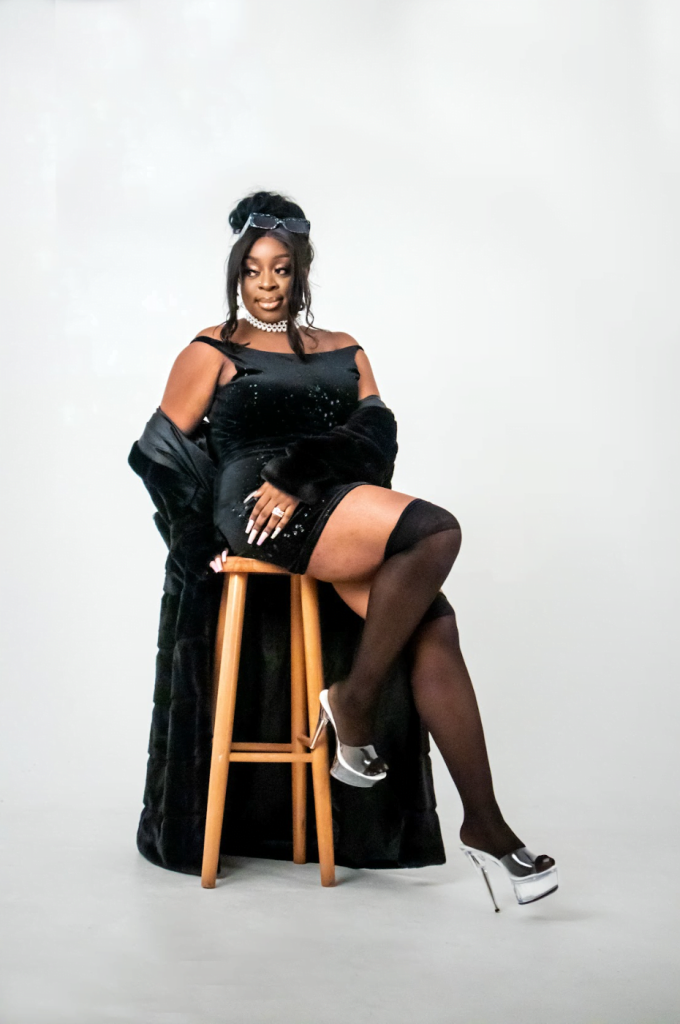
SC: What would you tell an up and coming artist just getting started in music?
GM: Consistently create and regularly release! We all enjoy the rags-to-riches story of artists growing their craft. You don’t build a following by focusing on just perfection but on consistency. Quality is something you must always strive for but perfection isn’t necessary because your definition of it is going to change the better you get. If you aim at perfection, you may never release anything; your audience will always prefer you to release every other month rather than once a year. That’s why I prefer TikTok over Instagram because you can set up a camera in your room, with any background, freestyle or dance and it might go viral. Find the right platform for the audience you want, create the best aesthetics for the brand you want to build and define the right frequency for releasing music.
SC: As an artist, should you just focus on releasing music without worrying?
GM: The musician is the captain of their ship; you can only afford the luxury of stepping back and only concentrating on creating music if you have a strong, knowledgeable team that you trust. Even then, I would advise learning the music business side of things and creating your network because you need to be able to have some sort of control of your career outside of the label or management.
SM: How do you handle issues with artists failing to show up for Interviews without leading with your emotion?
GM: It’s never personal in business. As a radio host,I have had artists cancel last minute for my show and they will see me outside and act like nothing happened. It’s always been a symbiotic relationship whether they understand that or not. They need my platform for validation and exposure and I need their content. The imbalance comes when one side forgets the value that both bring into the equation. As a publicist, it’s important for me to reinforce to the artist that building an audience and connecting the music with the audience is even more important than creating the music itself. Great music with no listeners is not sustainable. On the flip side, I have also had to cancel interviews on behalf of artists I manage for reasons beyond any of our control so I also think we should all extend more grace.
SC: As a young music executive, how do you approach other experienced music executives to build professional relationships without sounding like a desperate fan
GM: Have an elevator pitch! In 30 seconds or less, the person you’re speaking to should be able to learn a little about you, your experience, your background, your core values and the value you bring to the table. You only feel like a fangirl when you don’t feel like you have an equal exchange. If you have something that they can benefit from, then you should be confident to introduce yourself.
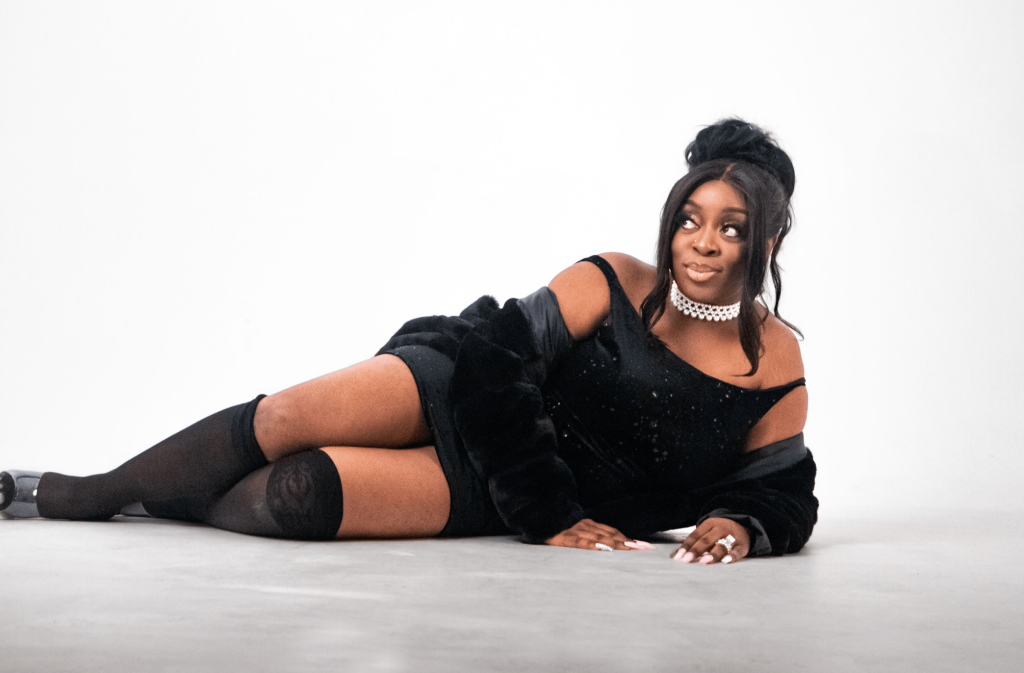
SM: What would you say was the worst moment in your career so far?
GM: GM: I am generally not someone who lives with regrets but there was once I was on a podcast and I said that Burna Boy was leaving a self-centered legacy. Wizkid’s legacy was evidenced in artists like DJ Tunez, DJ Xclusive and Starboy Terri, Davido’s legacy isin DMW, Olamide’s legacy is YBNL and affiliates like Adekunle Gold. When I look back, I realize that Burna Boy doesn’t owe any artist a come up, he’s been instrumental is furthering Afrobeats in other ways. He has consistently taken Afrobeats to the States, broken so many records, and appeared on Jimmy Fallon, Jimmy Kimmel, Coachella and more. He has been the face of Afrobeats to a lot of people who had no idea what the genre was and introduced Afrobeats to an audience that didn’t care about it previously. This has opened up the door for so many stars coming behind him. I realize that the definition of legacy is not monolithic, and I admit that I was wrong with that.
SM: What will you tell a 20-year-old Gracey Mae?
GM: Do the things that scare you. I think for a while I wanted to be sure I had consistent income because I was leaving law to get into Media. Who knows how much further I would be if I fully committed from the start? If you don’t take any risks, you don’t get any rewards so do the things that scare you.
Follow Gracey Mae’s work on her social media channels
Instagram/Twitter/TikTok: @_graceymae





